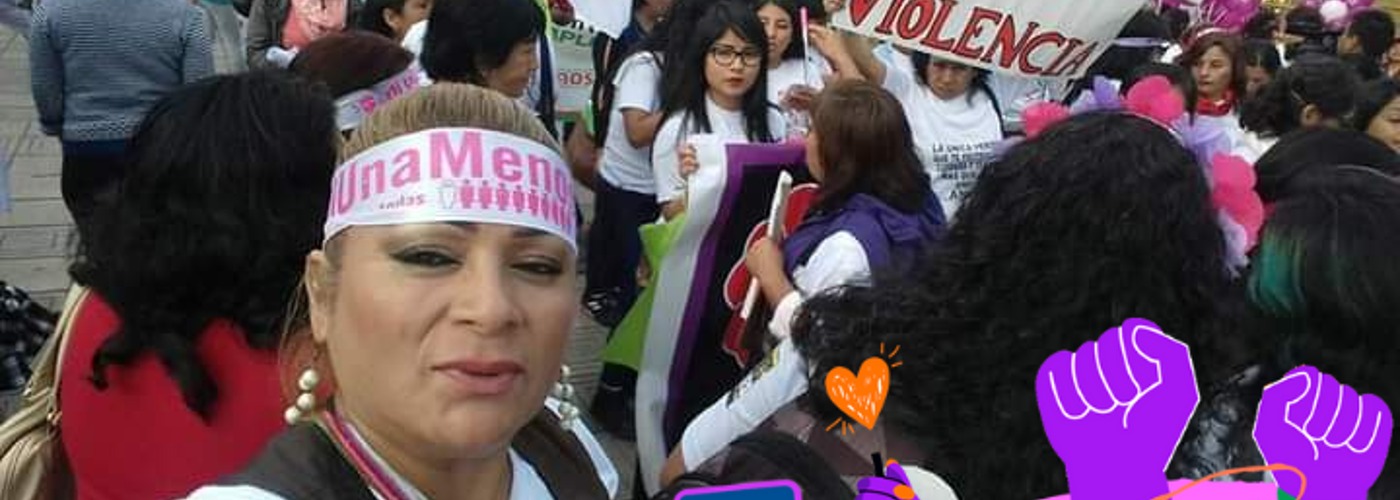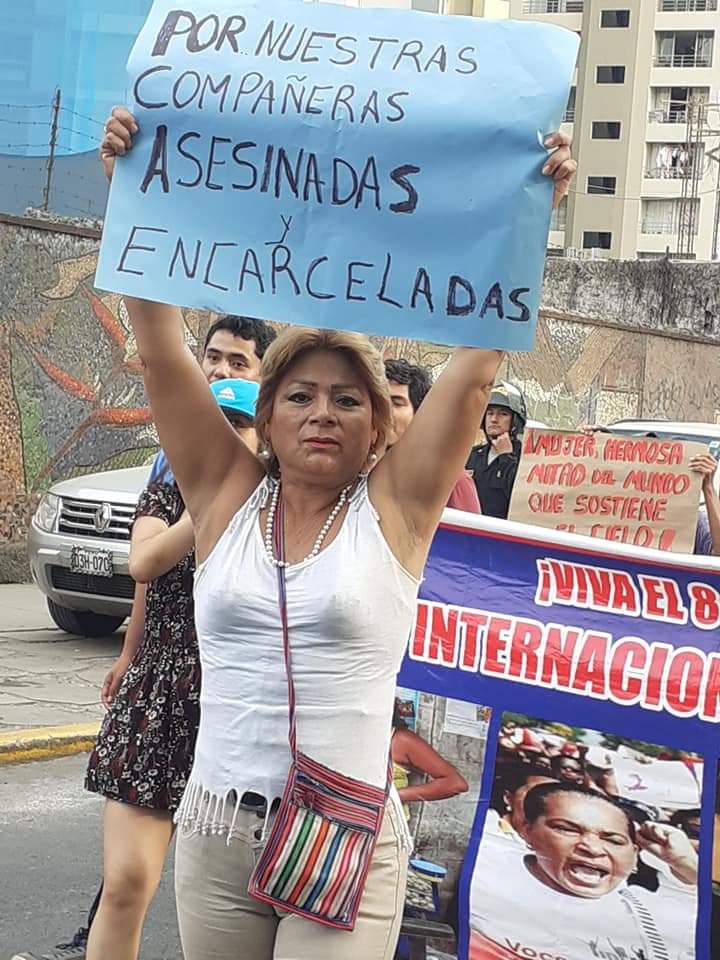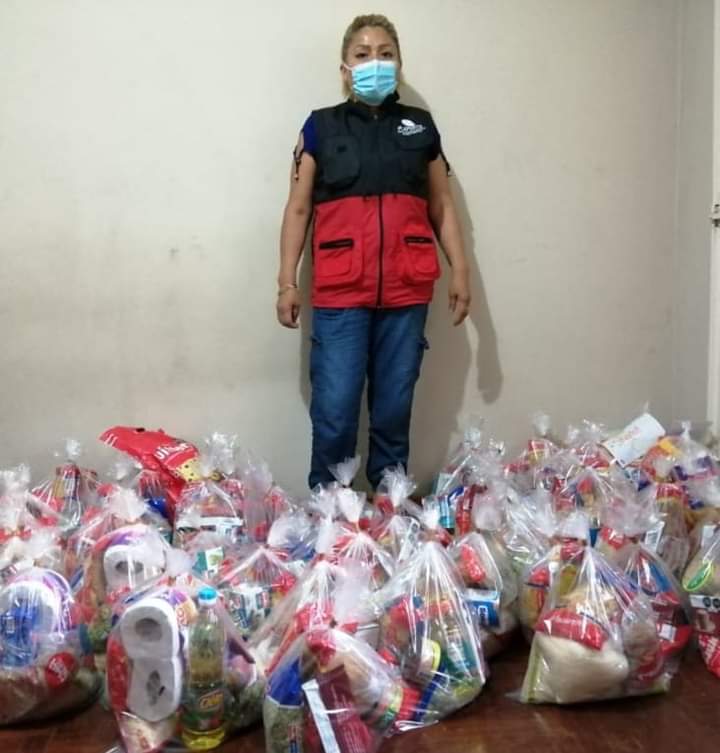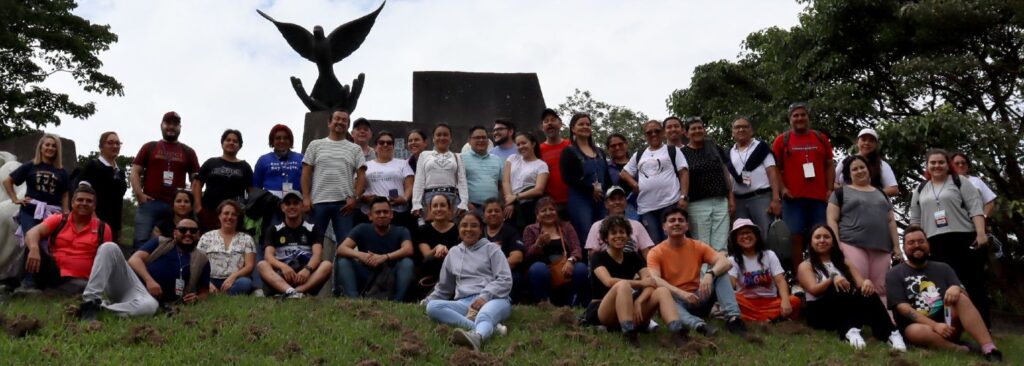By: Daniela Brenes Morera, ALEP project officer at Hivos Latin America
Leida’s penetrating gaze and warm smile exuded the calm power and wisdom that come from experience. This was the first thing I noticed when we met virtually for our interview.
Leida, now 55, is a representative of the Latin American Platform of Sex Workers (PLAPERTS) in Hivos’ Positive Leadership Alliance and Key Populations (ALEP) project. She is also an activist, mother and sex worker.
Selling herself to save her daughter
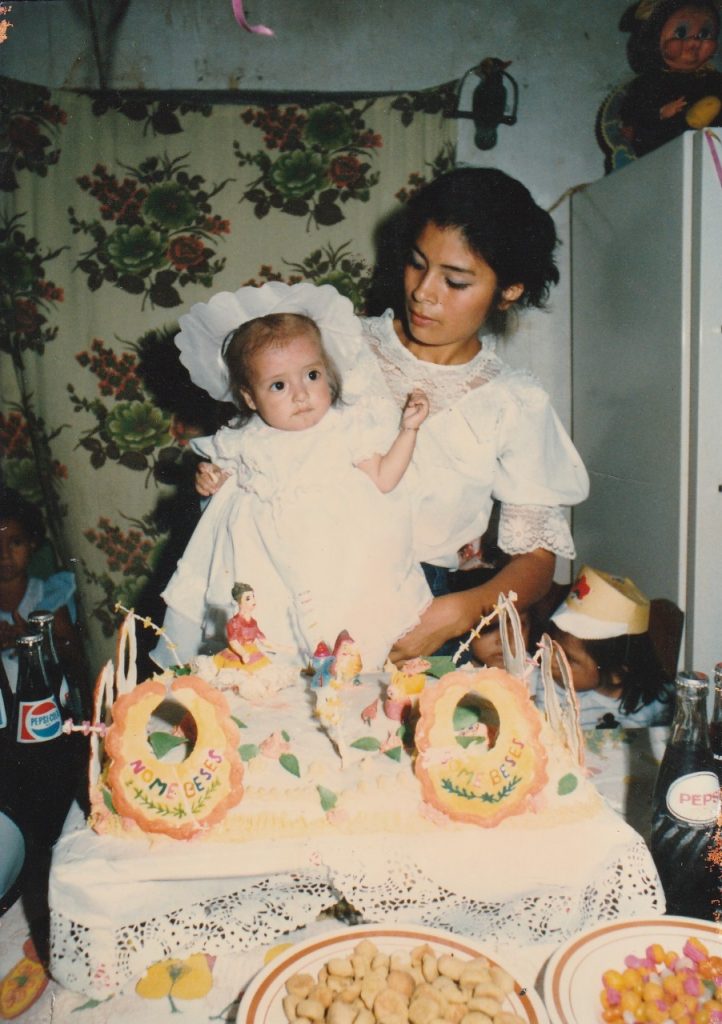
But at 20, she was a widow and a mother of five. When her youngest daughter suddenly developed a heart condition and needed an expensive operation, she had no one to turn to.
The doctors told Leida to “let her go,” and her brother even bought a coffin for the baby. But Leida refused to give up.
“They told me ‘You’re a woman and you’re broke – your girl’s gonna die,’ but there was no way I was going to accept that,” Leida exclaimed.
That’s how she became a sex worker, fully aware of everything it implied. “Saving my daughter was one of the greatest gifts I could give her,” she said. “And that’s also when I realized that this work would let me earn an honest living to support my family. From that moment on, I never looked back.”
Activism that developed naturally
When Leida was working at a house in Pucará (southern Peru), one of the other women developed a strange illness. “They said the spots on her skin and her collapsed lungs were the work of witchcraft. But some of our clients had the same symptoms, and we didn’t know why,” Leida told me. The woman died in her arms without ever knowing what she had.
Almost 25 years later, a peer educator in Lima approached Leida and her fellow sex workers. She told them about an organization for sex workers and gave them condoms and an illustrated brochure about sexually transmitted diseases (STDs). The pictures reminded Leida of her co-worker’s symptoms so many years ago. “The educator told us what HIV was, and if not treated correctly, it could be fatal.”
Leida took photocopies to all her co-workers in the peripheral areas of Peru. Some of them already had early symptoms of HIV, so they got tested and sought treatment. At that moment, without knowing it, an activist was born.
2010: a turning point
Leida and her fellow sex workers would pay some money every day to the police team that patrolled the streets as a kind of permit for them to work. The women always had to buy them gifts, pay their car insurance, and do anything they demanded.
But as she took more and more workshops from sexual education activists, Leida learned that sex work was not penalized so she didn’t have to pay off the police. However, the first night that she refused to pay, she was assaulted and brutally beaten by several policemen.
“They held me illegally for several hours, incommunicado. When they let me go, I was determined to fight back. I filed a formal complaint against the assault. That’s when I finally confessed to my kids that I was a sex worker,” she said, her voice trembling.
“I felt as free as doves when they take flight”
The experience was liberating. Between hugs, tears and lots of love, they supported her. The fear of them finding out, that had gripped her for so long, vanished completely. “They thanked me for giving them a good life and asked me never to feel ashamed of who I was or what I did for work. They said, ‘We’re with you mom, and we want you to live,’” Leida told me with tears in her eyes.
Leida’s case against her attackers lasted for years until her lawyer finally managed to charge them with six different crimes, ending in a prison sentence of 30 years. Her case became known internationally, and rather than hide, Leida decided to show her face in honor of all her fellow sex workers who have been assaulted or killed.
“I survived my ordeal, so I want to devote my life to fighting against the violence we face”, she said, resolutely. Recently, Leida was appointed president of the Rosa Mujeres de Lucha organization, which is part of PLAPERTS. It provides support to sex workers in 11 districts of Peru. The organization is named in honor of three sex workers named Rosa who died during the Covid-19 pandemic.
Covid-19
“The lock-down and the virus affected us terribly. We couldn’t go to the places where we worked, or take care of each other. The violence got worse, and police extortion increased unpredictably. Many women, including Ecuadorian migrants, were killed,” she said.
So, abandoned by the health ministries, she and her PLAPERTS companions complained publicly in the press. This helped them get food and supplies for more than 160 sex workers in vulnerable conditions.
“When state institutions turn their backs, it’s up to us activists to apply pressure and demand our right to better living conditions. Together, we have fought bravely against hate speech and violence, which continue to be legitimized by people in power,” Leida affirmed.
She not only continues to make information available about HIV, other STDs, and labor rights, but also talks to women about the value of self-love. “We find strength in each other – including in those who have passed. They inspire us and it is because of them that we can be powerful. Our families, whom we have supported with decent work, also give us strength. We are motivated by the desire to see them live happy lives. The fierce instinct to stand up together against the inequalities in the world also gives us strength. In the end, it is love that makes us powerful,” she concluded.
You can read the original, longer story in Spanish here.
About ALEP
The “Positive Leadership Alliance & Key Populations” project (ALEP+PC) is a Latin American consortium that aims to improve the living conditions of people living with HIV and of key populations, such as trans people, men who have sex with men (MSM), sex workers, and people who use drugs.
ALEP is funded by the Global Fund to Fight AIDS, Tuberculosis and Malaria. It works in 11 countries and reaches nearly 78 organizations across Latin American and the Caribbean.

